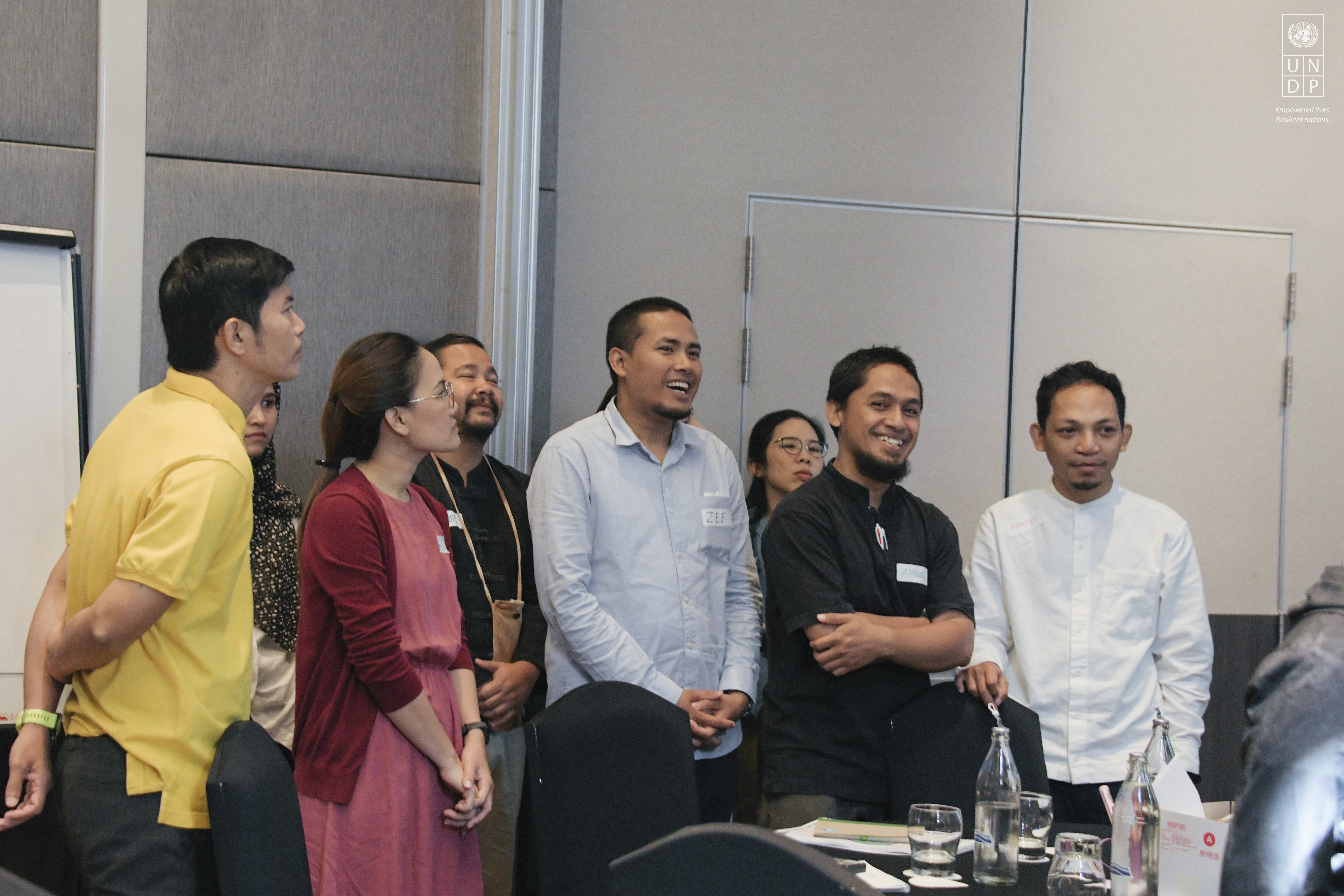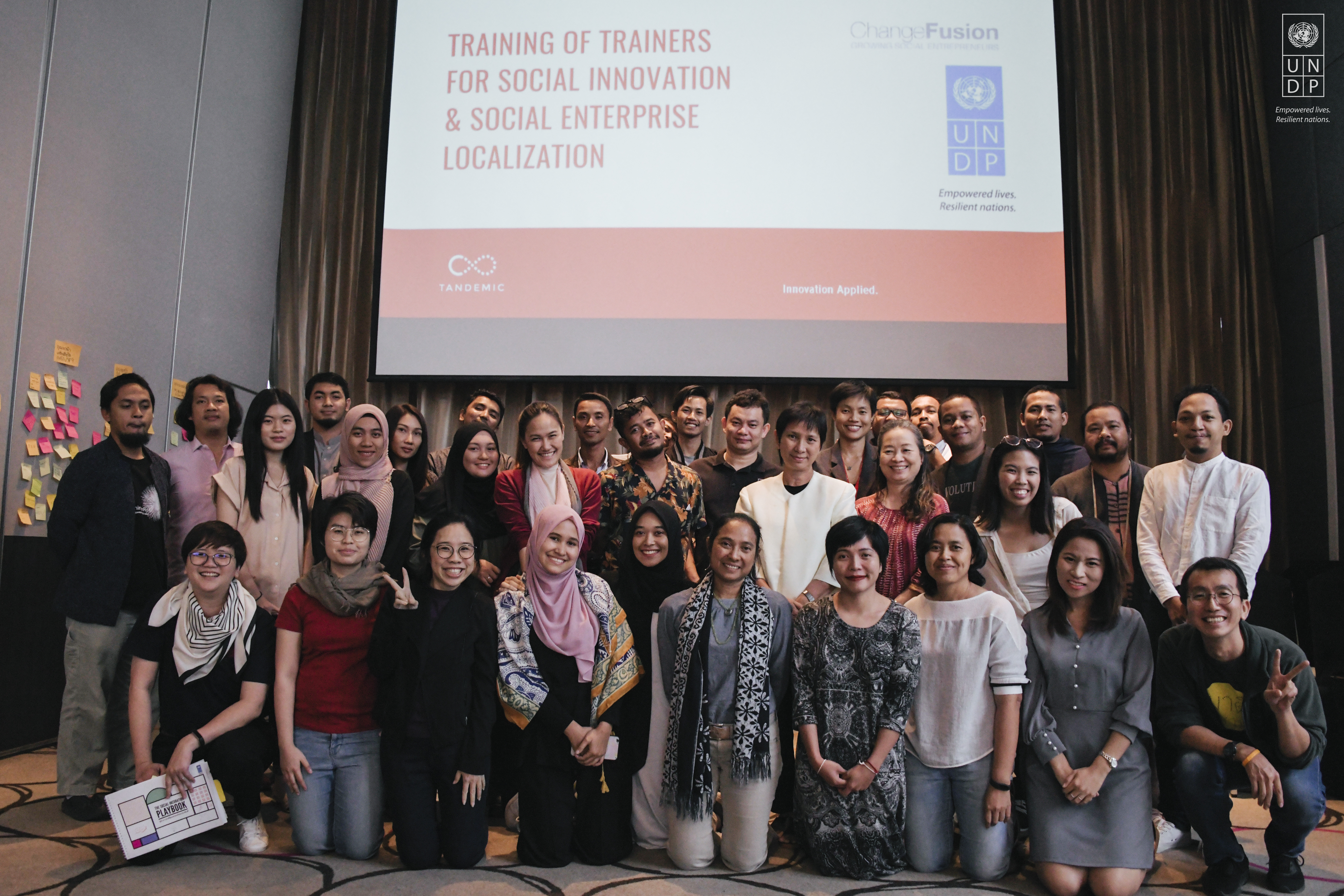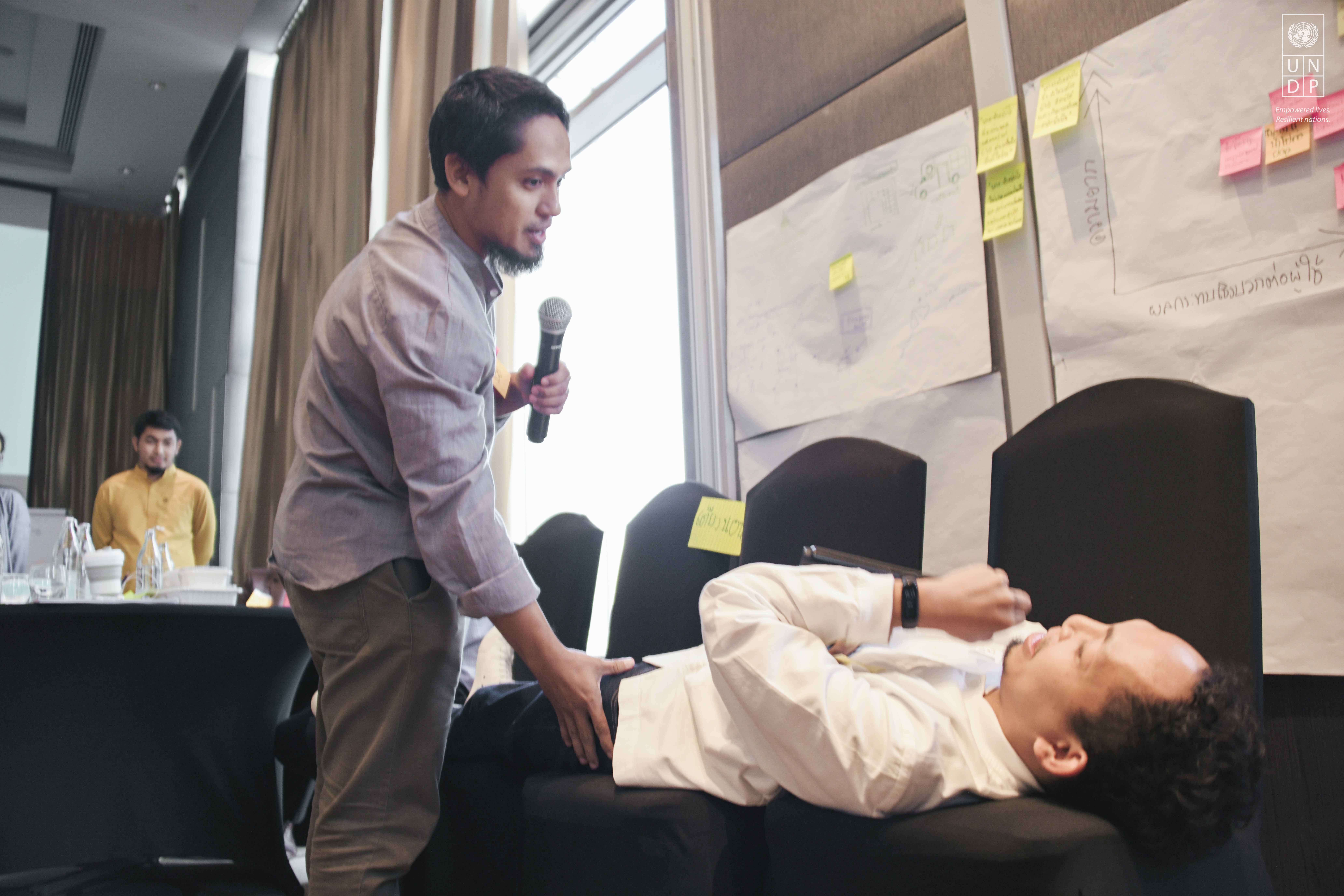- Published Date: 22/10/2019
- by: UNDP
‘Local Changemaker is the key driver to creating innovation at grassroots’ : Lesson learned from Training of Trainers for Social Innovation and Social Enterprise Localization
Written by Haidy Leung from ChangeFusion
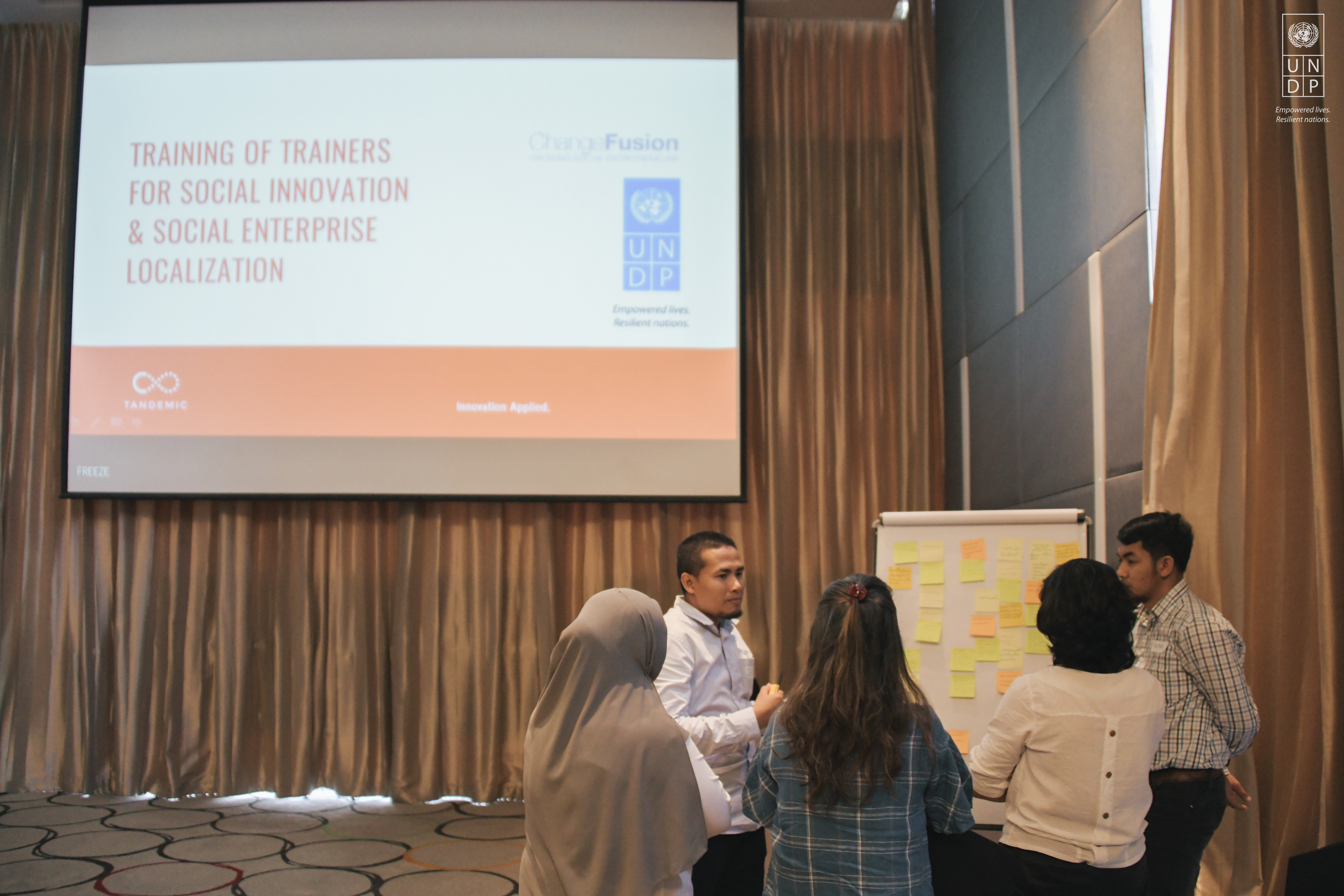
The “Training of Trainers (TOT) for Social Innovation and Social Enterprise Localization” workshop was held by UNDP Thailand in collaboration with Tandemic and ChangeFusion on 18-20 October 2019 at Novotel Phloen Chit, Bangkok, with a total of 30 participants from all 4 regions represented at the workshop.
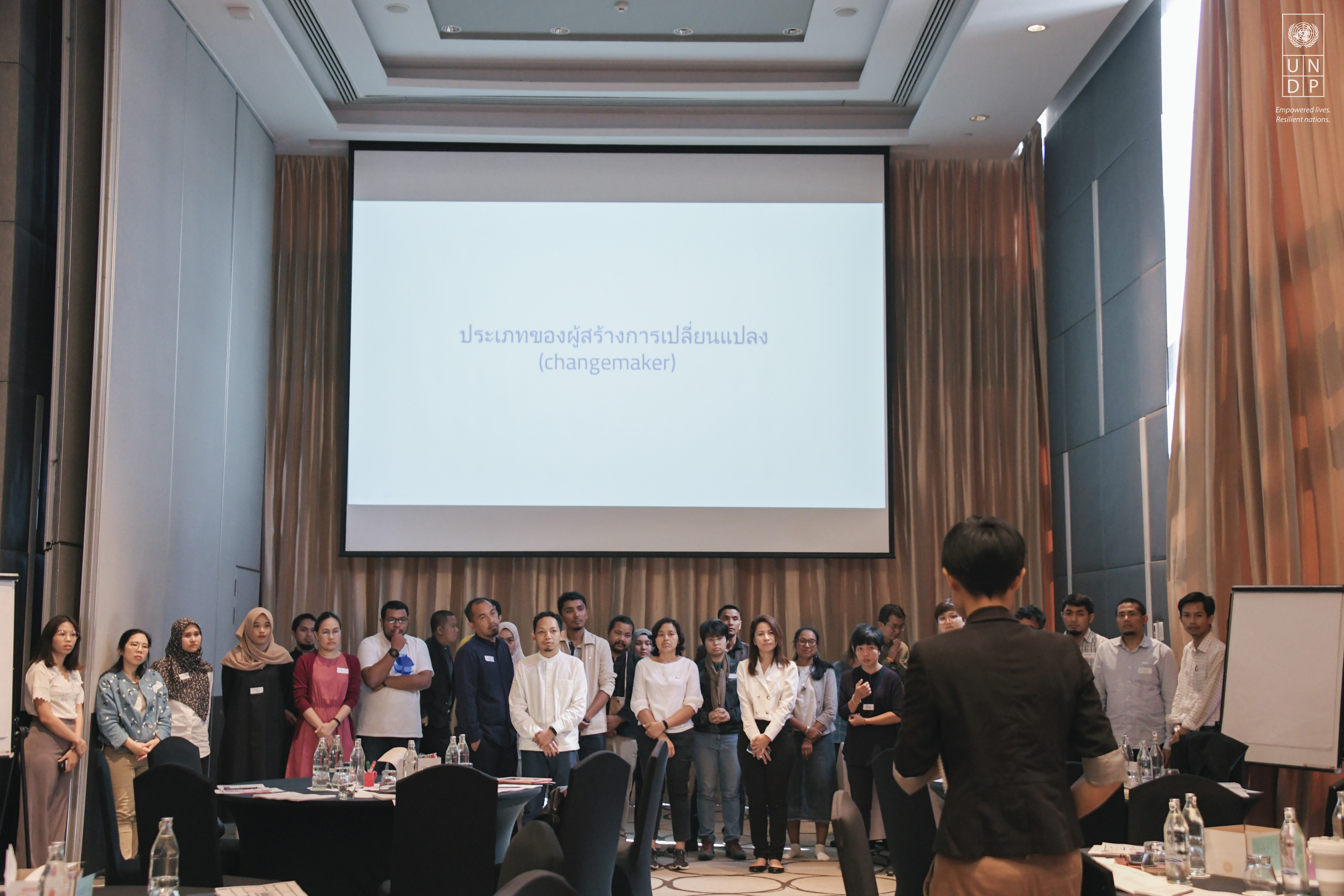
Background
It originated from the Social Impact Investment and Innovative Finance Landscape Mapping report commissioned by UNDP in 2018 which aimed to identify gaps and opportunities in the Thailand ecosystem for scaling social innovation and social entrepreneurship through social impact investment. One of the key strategic areas in growing social innovation and social entrepreneurship would be through localized effort in grooming changemakers. A decentralized development, such as the setting up of local incubation hubs and entrepreneur network, would quicken the pace in turning it into a nationwide movement and propelling the achievement of SDGs at the grassroots level.
Currently, most of the activities in the field of social innovation and social entrepreneurship and their relevant support are concentrated in Bangkok. In spite of an increase in social incubation programs in Bangkok in recent years, geographic distance is still a main barrier that refrains people from other provinces from participating. Furthermore, some of the program contents may not fit local context and priorities.
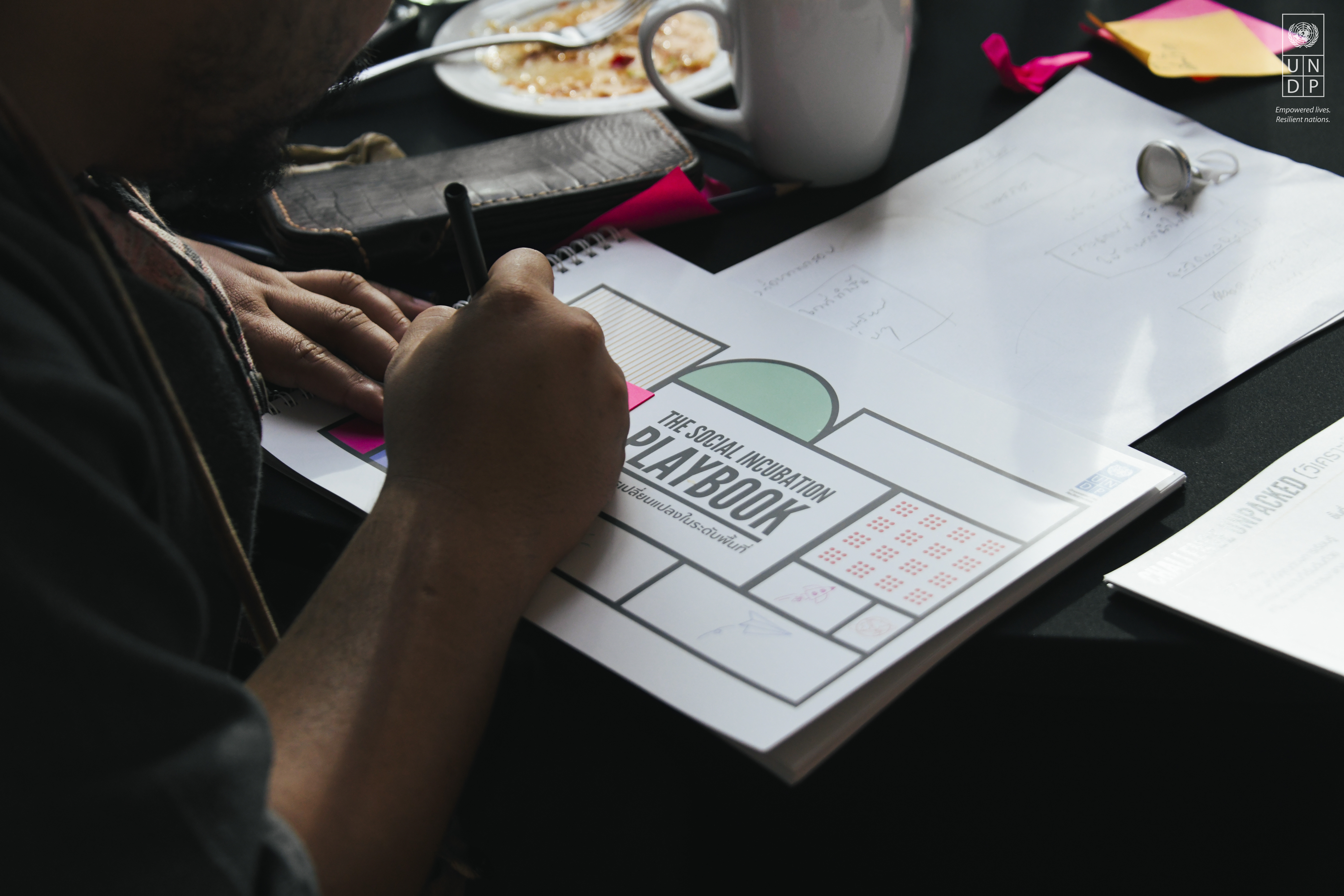
Yet, there are still plenty of invaluable insights generated by the existing incubators which could be shared with potential local incubators. Hence, in preparation for this TOT workshop, UNDP has organized another workshop in August to convene incubators in Bangkok, such as ChangeFusion, School of Changemakers, SEED, Good Factory and so on to consolidate tools and insights which were later compiled into an incubator playbook and was used in the TOT workshop as a guideline on how to develop one’s own incubation program.

What was done in the 3-day TOT workshop?
Day 1:
Starting from the fundamental step, participants were guided on how to extract information and insights from the potential incubatees in order to understand their real needs and aspirations.
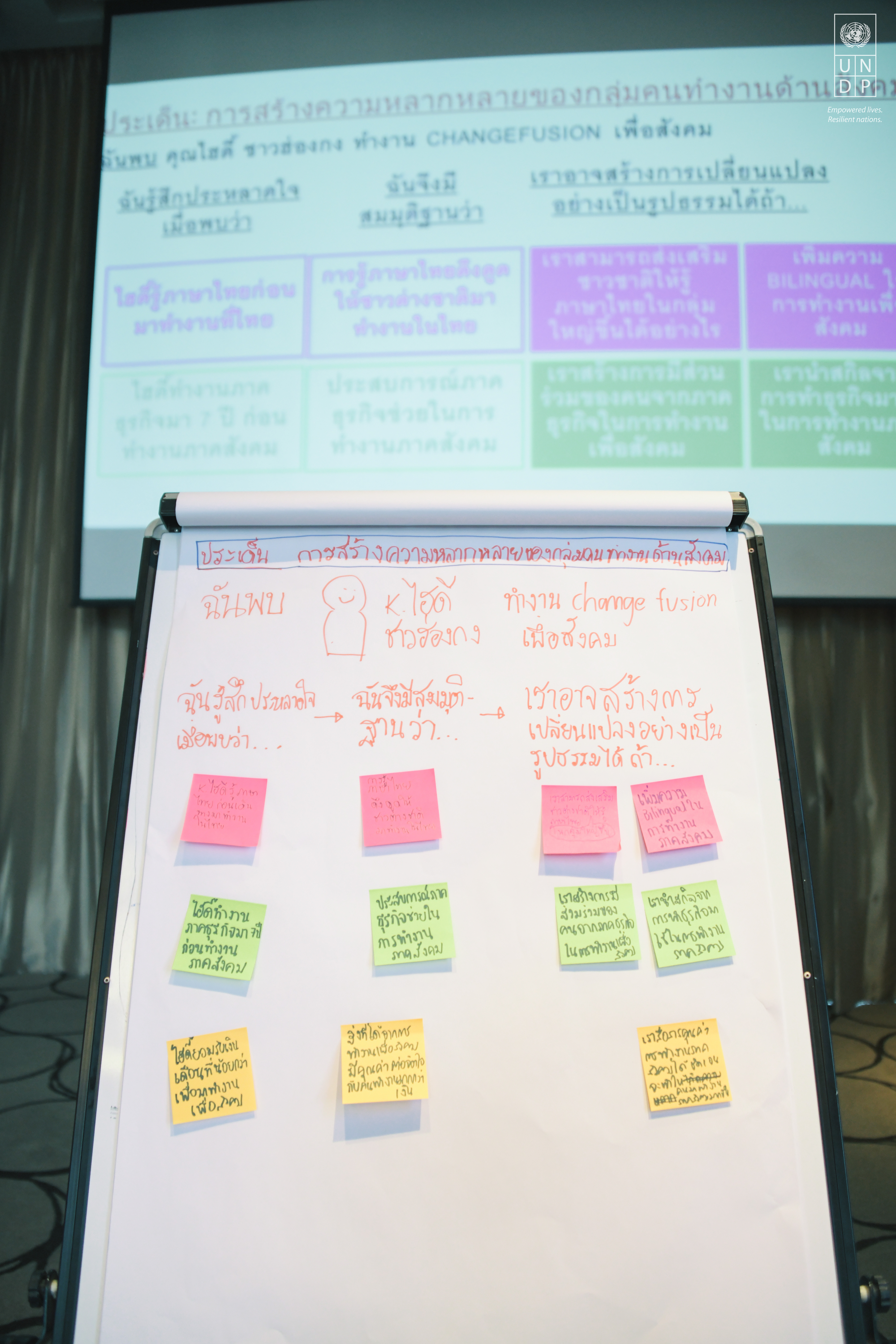
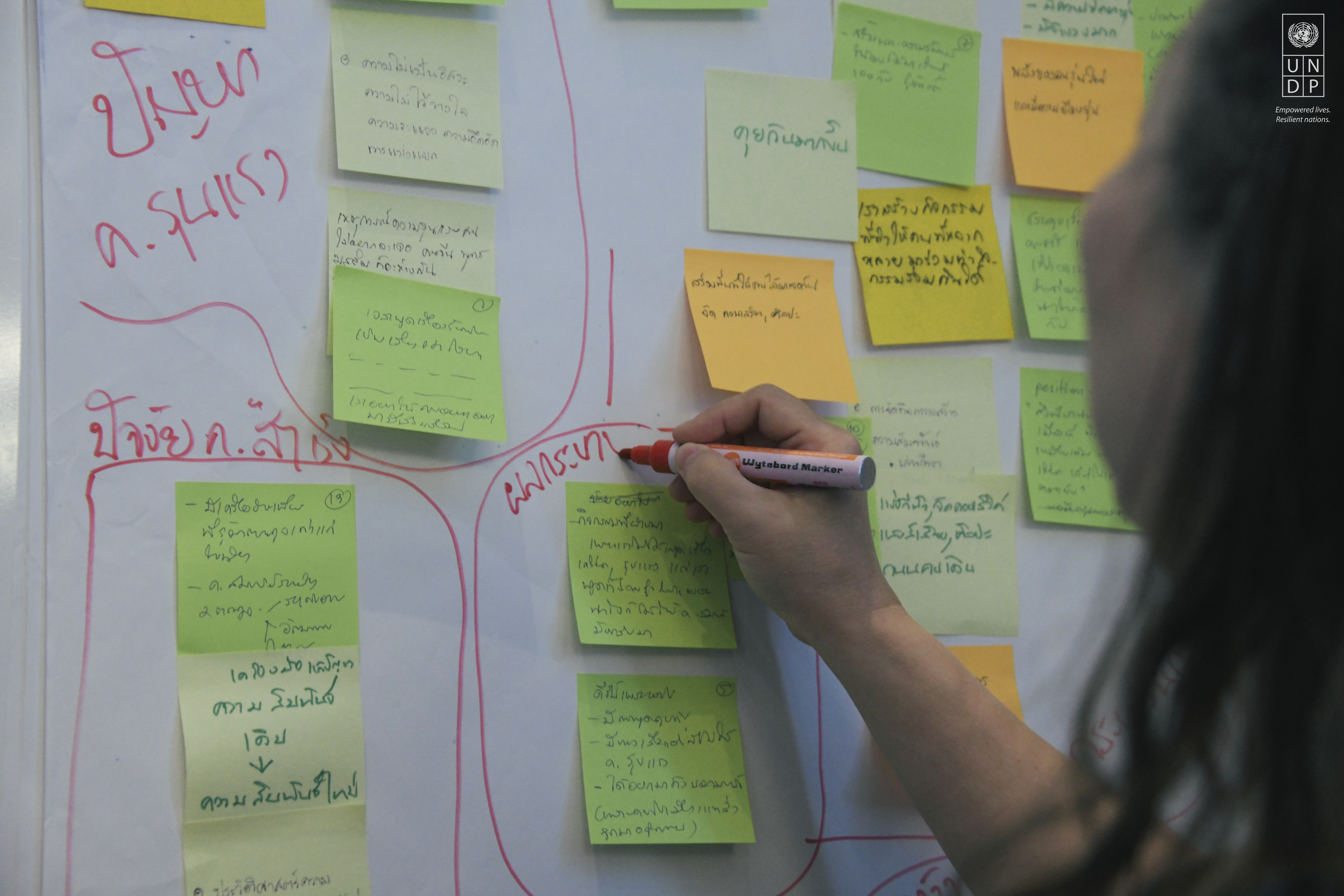
Day 2:
Highlighting interesting findings on Day 1, participants were further guided to design prototype of the intervention that would be used to engage the potential incubatees. Role play was also conducted to test out the prototypes developed by each team.
Day 3:
Base on the exercises done in the first 2 days, participants reflected on their own learning and how the new knowledge and insights can be applied to their plans and incubation programs.


Key takeaway and reflection by the participants
1. Incubation target can be social activist, social innovator or social enterprise or a combination of these
Participants have the liberty to choose their incubation targets base on their area of expertise. However, in case one would like to incubate, for instance social enterprise, and lack the relevant experience and knowledge, one may leverage partnership with experts such as entrepreneurs and corporate sector players to fill the gaps.
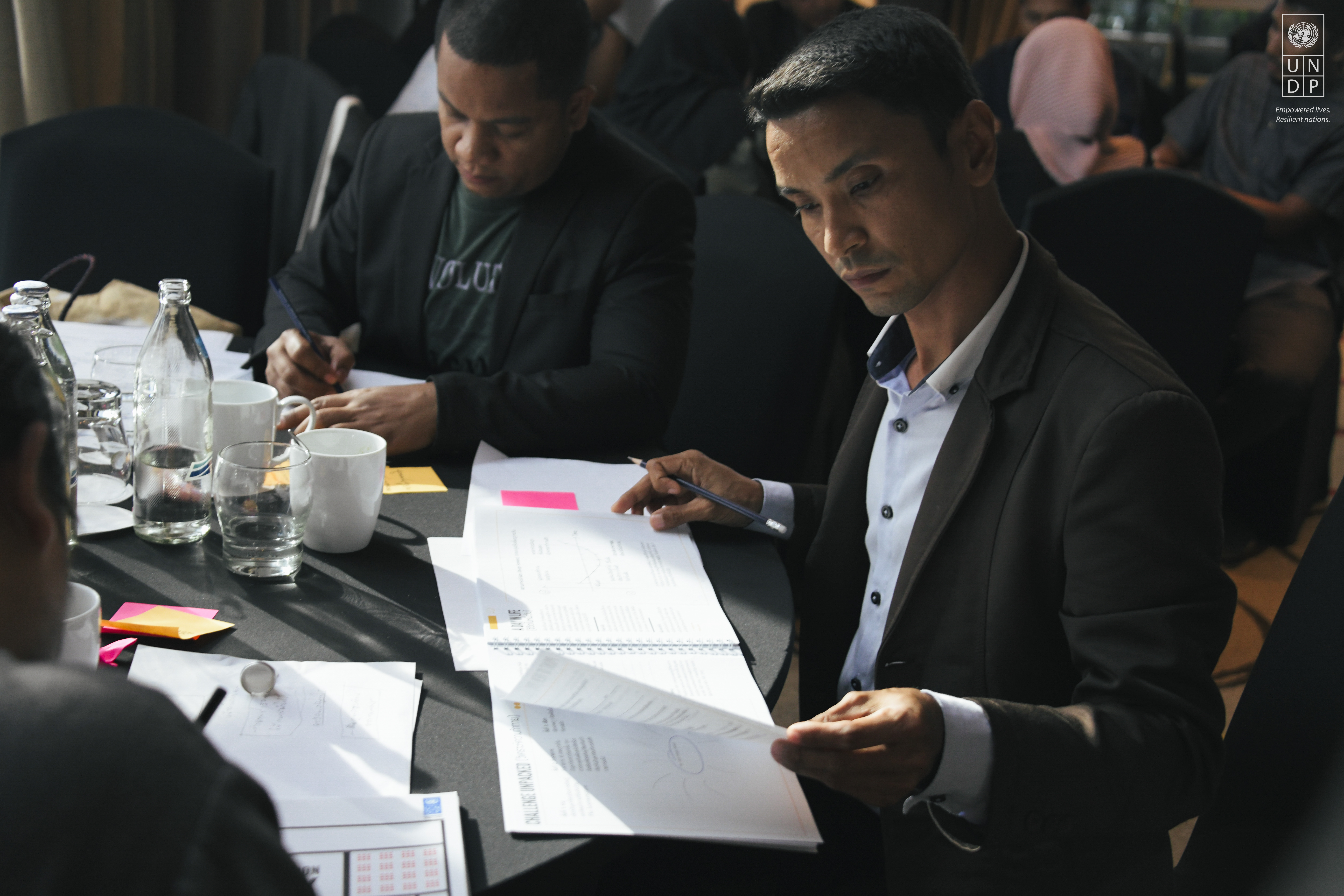
2. Tools applicable to participants’ work
A majority of the participants found the insight extraction tools particularly useful. The tools would help them understand their incubation target more thoroughly, which are mostly youths and students in their respective regions. The tools and techniques taught in the workshop also stimulated reflection among participants as to whether or not they are aligning their support initiatives to the target group’s most pressing needs.

3. Tools still need to be adapted and iterated to suit local context
In order to implement the tools in the incubator playbook effectively in local context, certain degree of adjustment and adaptation would still be needed, which should be further tested and iterated in order to find the best localized solution.
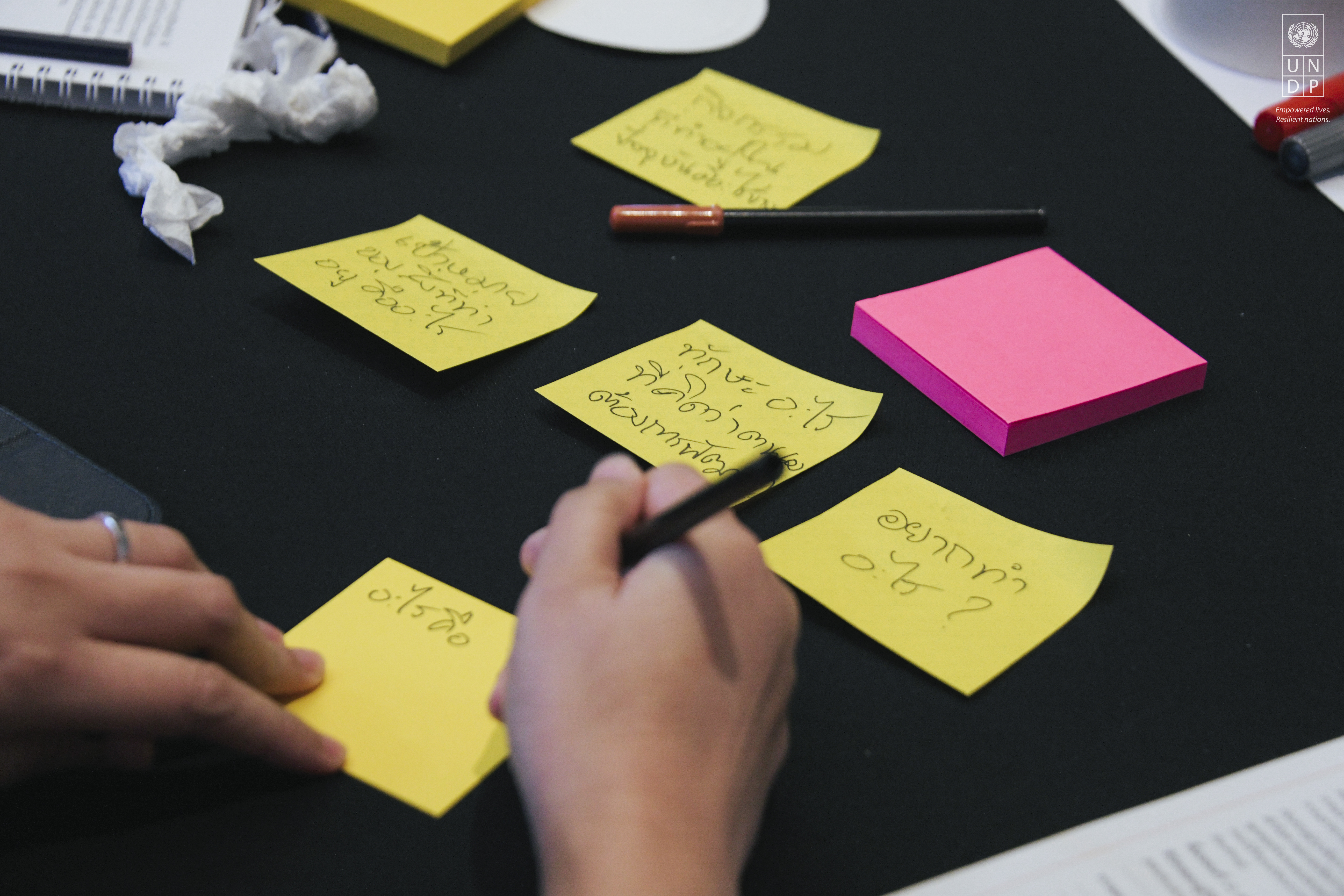
4. Potential to organize cross learning session in future
In spite of a diverse group of participants, several participants echoed that there were indeed a lot of similarities between provinces on the country border for instance Udon Thani in the Northeastern region, which is close to Laos and Vitenam, and the 3 southern most provinces including Pattani, Yala and Narathiwat, given the cultural diversity and the rich potential for cross-border collaboration.
